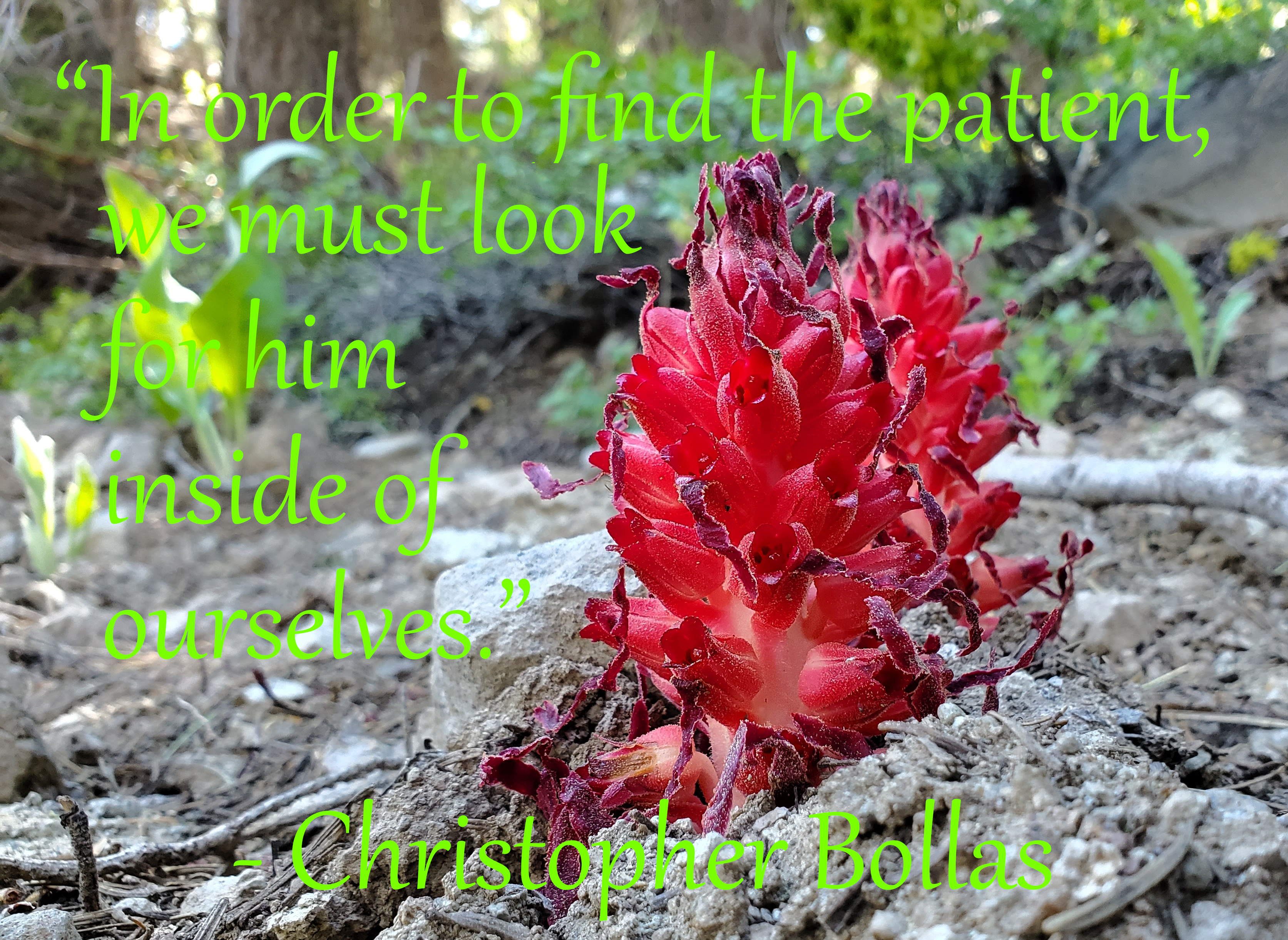“In order to find the patient, we must look for him inside of ourselves.”
Christopher Bollas
I came across this quote recently in a psychotherapy textbook, and thought it worthy of a nature photo meme.
Something that some therapy and coaching clients struggle with is a sense that their helper has it all together, is significantly higher functioning, and therefore could judge us or look down on us. But this fear, while understandable, is generally unnecessary and disproportionate to the situation. In my opinion, the therapists and coaches who feel holier-than-thou (probably a minority) are ones to avoid, and helpers who can “see the patient in themselves” are the ones who are going to be most likely to empathize, walk well with us, and have a non-judgmental approach and presence.
I don’t think that the spirit of this quote was adequately taught in my graduate program (which was a good program on the whole). It’s a sort of elephant in the room; an emperor-has-no-clothes situation: therapists and coaches tend to struggle with the same problems their clients have. Why on earth would we have chosen this work? Why else would we be interested?
It’s true that as clients, we don’t want a therapist or coach who is neck deep in the same problems that we face. After all, drowning people make lousy lifeguards. But we also want to know that the helper has been in deep water before and knows what it’s like to be scared there. And with problems that therapists and coaches help with (depression, anxiety, grief, worry, self-consciousness, shame, communication blocks, anger, guilt) it’s less like learning how to swim and more like learning pool or golf — even high level players have flop performances sometimes. So the therapist who specializes in self-confidence is going to have their share of self-loathing moments, and the one who specializes in anxiety is going to have their panic moments, and the therapist who gravitates towards body image and disordered eating will have their relapses in loving their body. And so on.
The important part is what tools the helper has that they can use with themselves, and how skillful they are with those tools. I do think it is true that a helper who can’t get themselves out of a hole is probably not going to be great at helping clients crawl out of holes. But I wouldn’t want a coach or therapist who has never fallen in holes in the first place, because that helper wouldn’t have practice getting out of the holes and so probably wouldn’t know how to help someone else get out.
Every good therapist or coach that I know of has been through at least one “hero’s journey”, but that journey is never quite finished, because no one ever fully “arrives” at completion or perfection (or at least I’ve never met anyone who has). The patient “inside of ourselves” could be the one who resembles a past hero’s journey, a current hero’s journey, or even a future hero’s journey. I have learned a lot from clients who have shared stories of life events that I’ve never been through myself, but can imagine how hard it would be if I had been, and how my struggles and solutions would likely resemble those of the client who is there, telling me their story.
